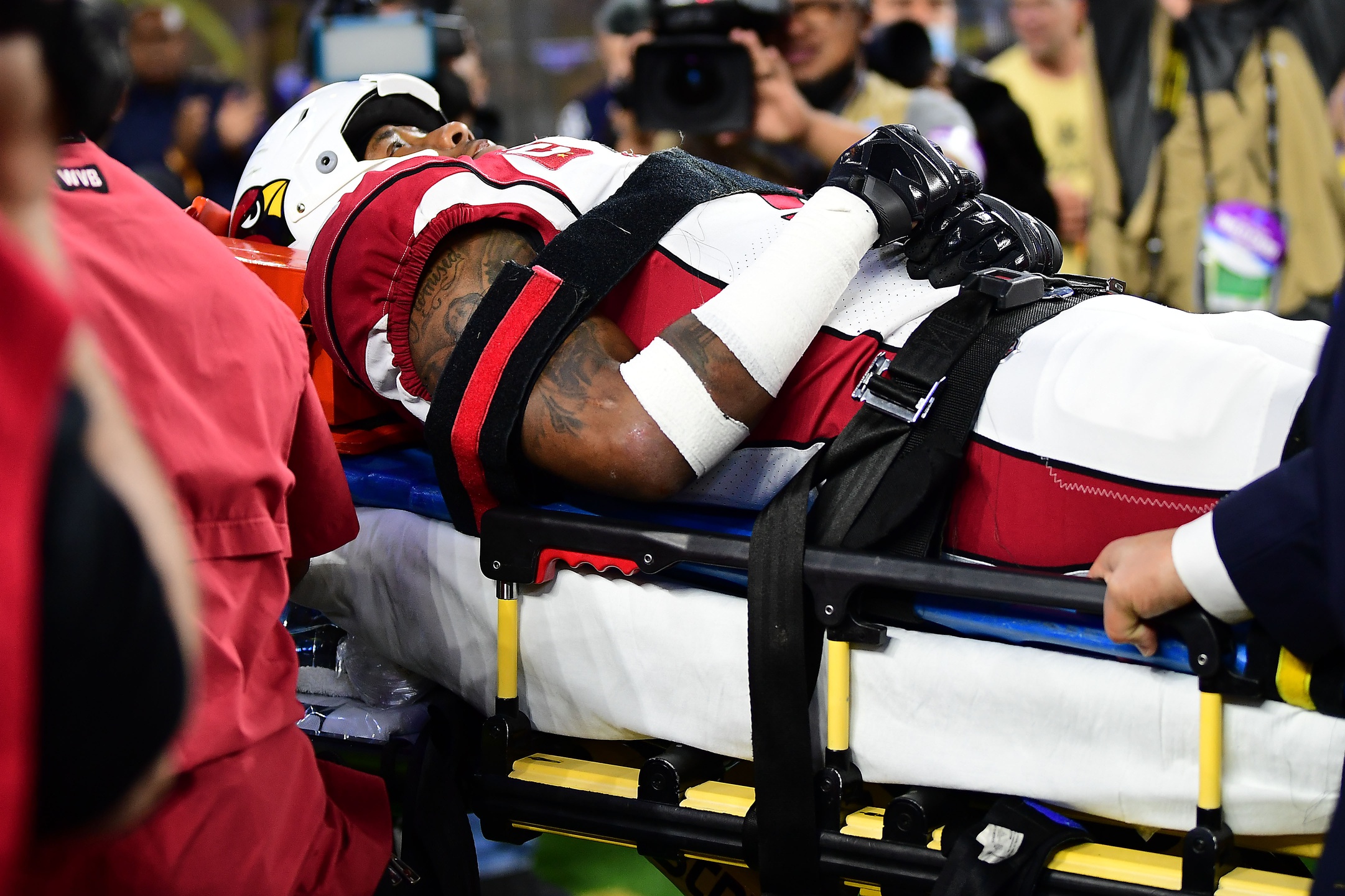Brian Murphy: The NFL is a vice, making it easier to overlook league's player injury shame

I love all the weekend escapism the NFL provides but hate how this pure entertainment drug has plunged hooks so deep into our exhausted souls that it’s impossible to escape.
Too addictive to quit. Too big to fail. Too morally bankrupt to validate conflicting feelings about the carnage this brutally captivating sport reaps and yet still denies.
I’ve reconciled that ambivalence as I bury my freelance snout into the NFL’s bottomless content trough. So are you judging by the endless clicks and record-smashing television ratings that continue defying our fragmenting consumption habits.
We have Super Bowl LVIII next week in Las Vegas – finally – as the ultimate sport sicks its booze, betting and commercial gluttony on Sin City.
Listen to the roaring freight train of hype carrying Usher, Reba McIntyre and Post Malone in the showbiz car, with $7 million ad buys and appointment viewing from a bygone era gift-wrapped for CBS and its broadcast army.
Taylor Swift, the most recognizable celebrity on the planet, is still smooching Chiefs tight end Travis Kelce, whipping Knuckledragger Nation into a frenzy of dude-bro insecurity and conspiracy theories that are more pathetic than laughable.
And we have the sharks on Park Avenue prowling for evermore league revenue while continually looking the other way on head injuries and justice for the wounded players on whose broken bodies these shameless suits stand tall.
You might have missed the recent headlines about how the NFL is leveraging lawyers and bureaucracy to pinch pennies and run out the clock on suffering former players who were denied benefits from a ballyhooed class-action concussion settlement.
Surely you remember all the peacocking commissioner Roger Goodell and his minions did in 2015 after the league agreed to pay millions for medical care for retired players who developed dementia and other brain diseases linked to head injuries from their playing careers.
The NFL has paid out $1.2 billion in the last eight years. But, according to an investigation by The Washington Post, many players with dementia aren’t getting anything. Or they died before their claims were processed.
The league’s review doctors often blame other ailments or diseases for players’ suffering while diagnosing dementia at a higher standard than U.S. doctors. The NFL, big shock, demanded the more stringent criteria during settlement negotiations.
The Post identified 14 players who failed to get settlement money or medical care, then died and had chronic traumatic encephalopathy (CTE) – the disease at the center of the former players’ lawsuit – diagnosed after an autopsy.
Among them were Hall of Fame defensive end Claude Humphrey, Super Bowl VII MVP Jake Scott and original “NFL Today” broadcaster Irv Cross, who was the athletic director at Macalester College from 1999-2005 and died in hospice care in 2021 near his home in Roseville, Minnesota.
The Post also reported that almost 300 players diagnosed with dementia have had their claims denied because review doctors linked the disease to other ailments like depression and sleep apnea.
Here are paid apparatchiks still more interested in protecting the “Shield” and its wealthy owners years after the rising body count and Congress shamed them into tacitly linking CTE science and repeated blows to the head in pro football to long-term neurological diseases.
Even now, with all the sworn testimony, lab reports and human misery chronicled – the cat totally out of the bag – Goodell and his overlords are still standing here debating.
Only 18 months ago, during a deposition in a lawsuit involving the 2015 settlement, Goodell again questioned whether there is a link between concussions and long-term brain injuries.
Front Office Sports obtained a transcript of Goodell’s nine-hour deposition from July 2022, in which he blamed the media for distorting coverage of head injuries and touted the NFL’s rule changes and concerted efforts to identify concussion symptoms and mitigate risk.

To be sure, the league has come a long way in recognizing potential head injuries on the field and implementing protocols aimed at protecting players from concussions and their overly competitive selves.
But all of that is gutted by legal hairsplitting and disingenuous defiance, like what Goodell spewed under oath about trying to make the sport safer.
“We all know there’s risks with playing football and other sports,” Goodell testified, according to FOS. “There’s risks to walking down the street.”
The NFL just can’t bring itself to acknowledge its product is harmful and potentially fatal to those who perform for us all. But society has.
The NFL essentially is a vice, just like drugs, alcohol, tobacco and – oh, yes – gambling. Most are legal, others are getting there. Like the landmark 1964 Surgeon General’s conclusion linking cigarettes to lung cancer and other fatal diseases, we know these things are bad for us and those that use them (or play).
Football players and fans must decide if the risks associated with their beloved sport are acceptable, like fiery auto-racing deaths and boxers becoming vegetables. Rubes will shrug at the bloodshed, wipe the tequila and barbecue sauce from their chins and bury their heads in their fantasy and gambling apps.
Nothing to see here.
But all of us must accept the truth that the NFL is a savagely satisfying product we can’t get enough of, acknowledge our complicity in the media-industrial-entertainment complex and hold the NFL accountable for the health of its valuable employees long after they’ve hung up their cleats.
Put everything on the table instead of whitewashing risks and parsing out liabilities in the backrooms of insurance companies and owners meetings.
The NFL has unbridled power to inspire and entertain. Only denial can snuff that.
